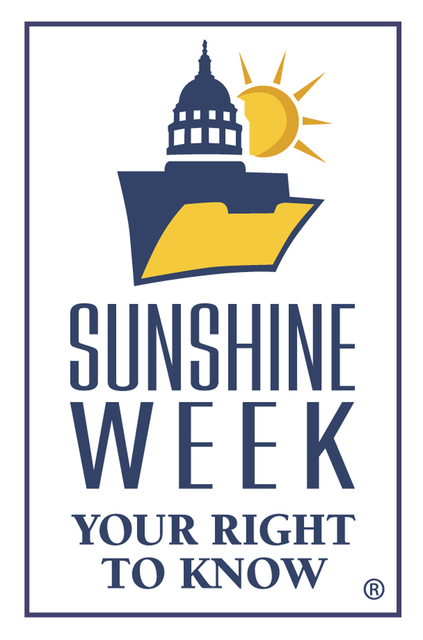A bid to give North Carolina a larger role in picking presidential nominees could gradually lead to more transparent and accountable government on the local, state and national level.
Last fall, state lawmakers moved the primaries formerly held in May to the ides of March. That falls smack-dab in the middle of Sunshine Week, a nationwide open government initiative organized by press freedom groups and powered by the investigative efforts of wire services and newspapers from coast to coast.
Spearheaded by the American Society of Newspaper Editors and Reporters Committee for Freedom of the Press, Sunshine Week began in 2005 and is observed annually to coincide with the birthday of James Madison, a primary author of the Bill of Rights who went on to become the fourth U.S. president.
Sunshine Week 2016 began Sunday and wraps up Saturday. It is a nonpartisan initiative that favors neither liberal nor conservative causes, but the universal cause of the public’s right to know how government spends our tax dollars and how our elected leaders deliberate, debate and decide on public policy.
We can think of no more fitting coincidence than Election Day taking place during Sunshine Week. It’s our fervent hope that voters go to the polls today with open government issues in the forefront of their minds.
The Tar Heel State has seen several threats to the public’s right to know materialize during the General Assembly’s regular session last year. They include a bill that would deny public records access to non-North Carolina residents and an effort to hide public notices on little-used government websites instead of publishing them in newspapers.
Backers say the clumsy rewrite of North Carolina’s public records law would turn away voluminous requests from out-of-state groups. As we’ve said in this space before, federal funds account for nearly a third of our state’s budget, and all Americans have a right to see how their money is being spent. We oppose any effort to limit access to the people’s records.
High-powered lobbyists for county and municipal associations continue to decry the cost of advertising public legal notices in newspapers, but the alternative they propose would make public notices less accessible, and by definition, a lot less public.
Placing the notices only on government websites that see relatively little traffic ensures fewer people will be informed, and it would leave the roughly one in five North Carolinians without Internet access — who are disproportionately low-income, elderly and minorities — out in the cold entirely.
If you’re registered to vote and have not already done so during the one-stop early voting period, we implore you to exercise your right to participate in democracy today. Photo identification is required, but those without a valid ID can still cast a provisional ballot.
While we don’t endorse individual candidates, we do encourage voters to research all office-seekers thoroughly and to select leaders who believe government should be open and accountable to the people it serves.

